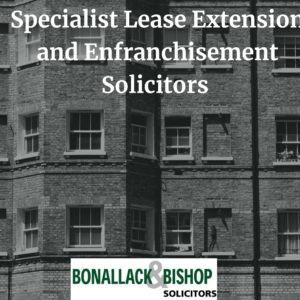What Are the Powers of the Residential Property Tribunal? 
The full name of the Leasehold Tribunal is the First-tier Tribunal Property Chamber (Residential Property) is not exactly a short and snappy title. Until 2013 this body was known as the Leasehold Valuation Tribunal or LVT.
The Tribunal has five regional offices around England to give independent help to settle any disputes involving leasehold and rented property. The Tribunal operates in England only; Scotland and Wales have separate systems for resolving this sort of property dispute.
The Tribunal settles specific types of property disputes which would otherwise end up in the Court system, and has powers to settle cases and give everyone cheaper access to justice. Some cases but not all attract a scales of fees, but there is no charge for the Tribunal hearing about disputes regarding the amount which has to be paid to extend a lease or buy the freehold of a building.
The Tribunal does not get involved in any disputes about non-residential properties and it deals with both freehold and leasehold issues.
Going through a leasehold dispute? Call our specialist solicitors on FREEPHONE 0800 1404544 for FREE initial phone advice – with no strings attached.
Who sits on the Leasehold Tribunal panel?
Each of the five regions has a Regional Judge, who is assisted by one or more deputy judges and leasehold valuers. These people are responsible for the members of the Tribunal and decide which members should take charge of a particular case. Members of the Tribunal are appointed to their positions by the Lord Chancellor.
The Chairman of the Tribunal will be a judge or surveyor. This person looks after the conduct of cases and writes the report giving the Tribunal’s decision.
Other members of the Tribunal could be other professionals, lay people or surveyors.
On occasion the Chairman may sit alone, but it is more common for the Tribunal to be made up of the Chairman and one or two other members.
Powers of the Leasehold Tribunal
The Property Tribunal decides on many different types of leasehold disputes and can make rulings on a wide variety of residential property issues including the following:
• The price which has to be paid when one leaseholder wants to buy the freehold of their property (enfranchising), or wants to extend the lease on their property and cannot come to an agreement over the price with their landlord.
• The price which should be paid to the landlord when one leaseholder wants to go through the process of leasehold extension for their flat and cannot negotiate a price with the landlord.
• How much should be paid to the landlord in costs for dealing with any enfranchisement application or leasehold extension.
• The price which should be paid to the landlord when a group of leaseholders gets together in a collective enfranchisement to buy the freehold of a block of flats and can’t agree on a price with their landlord.
• If the landholder or freeholder is absent and cannot be found, the Tribunal can make a ruling on the price to be paid for the transfer of the freehold.
Click here to read more about absent freeholders and your lease extension – and vesting orders in the County Court
• Tribunals can also make rulings on who is liable to pay administration and service charges, when the payments should be made, and to whom.
• Varying long leases on flats
• Whether RTM companies (Right to Manage) have the legal right to be granted the right to manage on the date stated
• Whether the landlord can modify or dispense with the landlord’s need to consult with their leaseholders before undertaking major work and then asking leaseholders to pay for it through the service charge.
• When a landlord cannot be located, whether a RTM company can be granted the right to manage
• The level of costs which can be claimed by a landlord (or anyone else party to the lease except the tenants and the landlord) or managers who are appointed in connection with a Right to Manage
• The level of service charges to be paid to a RTM company by a third party, manager or landlord
• Whether there has been a breach in the conditions or in a covenant concerning the lease on a residential property.
Looking for Leasehold Tribunal Advice You Can Rely On? Contact Us Today
Our specialist lease disputes and lease extensions and enfranchisement team can advise you wherever you live in England or Wales – and we don’t even need to see you – taking your instructions by e-mail, phone and Zoom video:
- Just call FREEPHONE 0800 1404544 for a FREE initial phone consultation and a FREE quote, OR
- Complete the email contact form below


 gritty of how to track down a landlord [or more properly your freeholder], that you can still take steps to
gritty of how to track down a landlord [or more properly your freeholder], that you can still take steps to  are various advantages to buying the freehold as you will see from the answers to the following frequently asked questions.
are various advantages to buying the freehold as you will see from the answers to the following frequently asked questions.